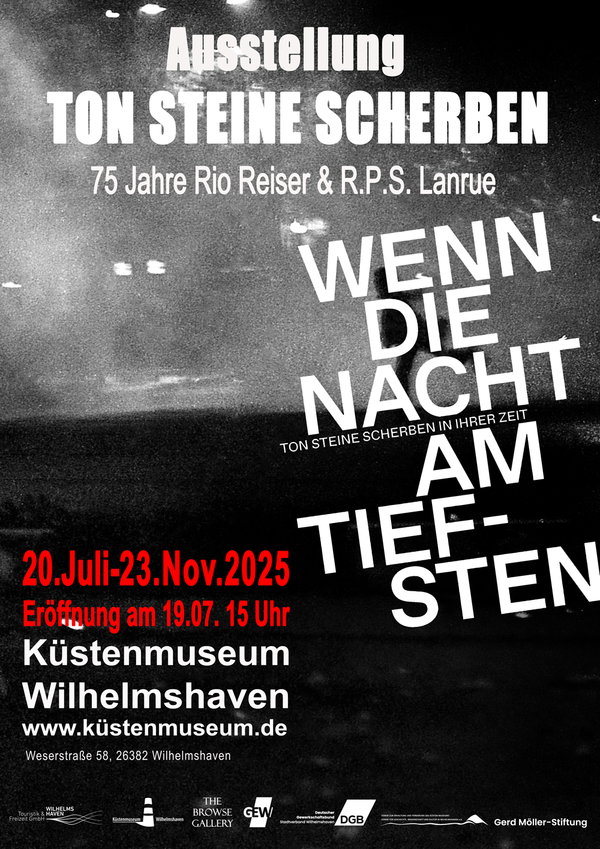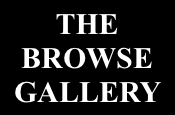
Browse Gallery traveling exhibition WHEN THE NIGHT IS AT ITS DARKEST – Ton Steine Scherben in their Time shows at the Küstenmuseum Wilhelmshaven July 19 to November 23, 2025
The two-part traveling exhibition “WHEN THE NIGHT IS AT ITS DARKEST – Ton Steine Scherben in Their Time” presents over 250 images featuring the faces and stories of the band Ton Steine Scherben and their charismatic frontman Rio Reiser. Their career did not arise from strategic planning by major labels, but rather grew from the ground up: from local initiatives, everyday experiences, and social struggles reflected in their songs. Their music resonated with a youth movement that, in the late 1960s and early 1970s, was striving for change and self-determination—amid the Cold War and a post-war society still shaped by authoritarian structures.
Part I: Open-Air Exhibition
The first part features over 50 Berlin-based and international photographers whose iconic press photos recall the post-war era. Forty-eight large-scale photo-text banners highlight the political, social, and cultural forces that shaped the revolts of the 1960s/70s and influenced the development of the band: from Germany’s Nazi past and the construction of the Berlin Wall to the cultural revolution triggered by rock ’n’ roll, the U.S. civil rights movement, the APO (Extra-Parliamentary Opposition), and protests against the Vietnam War. These images reveal the sources of Ton Steine Scherben’s energy—rooted in the anger, hope, and disillusionment of a generation that had been promised democracy and peace, but saw those promises broken.
Part II: Indoor Exhibition
The second part presents portraits and candid moments captured by photographers who accompanied the band—from their beginnings in theater, through squatting movements, participatory neighborhood culture, and commune life, to tours, self-produced records, and theatrical projects.
The exhibition documents what continues to make the band credible to this day: they didn’t just sing “Freedom is our goal,” they lived it. They acted in solidarity with apprentices, homeless people, political prisoners, squatters, anti-nuclear activists, and queer theater groups such as Brühwarm and Transplantis.
Impact
Ton Steine Scherben were not just a part of their time—they helped change it. As an authentic expression of youth rebellion, they helped shape social developments and democratic movements. The band disbanded in 1985, but their influence endures: through Rio Reiser’s solo career, his untimely death in 1996, and the lasting legacy of the band, they secured a permanent place in German rock history.
Photographers:
Axel Benzmann, Ludwig Binder, Gerd Danigel, Thomas Hesterberg, Nick Ut, Rita Kohmann, Wolfgang Krolow, Jutta Matthess, Astrid Proll, Jim Rakete, Ilse Ruppert, Siebrand Rehberg, Rüdiger Trautsch, Günter Zint; archival photos of Rio Reiser and Ton Steine Scherben; and images by Sönke Tollkühn, John Colton, and Sabine Drwenzki (Browse Gallery).

 Deutsch
Deutsch  English
English